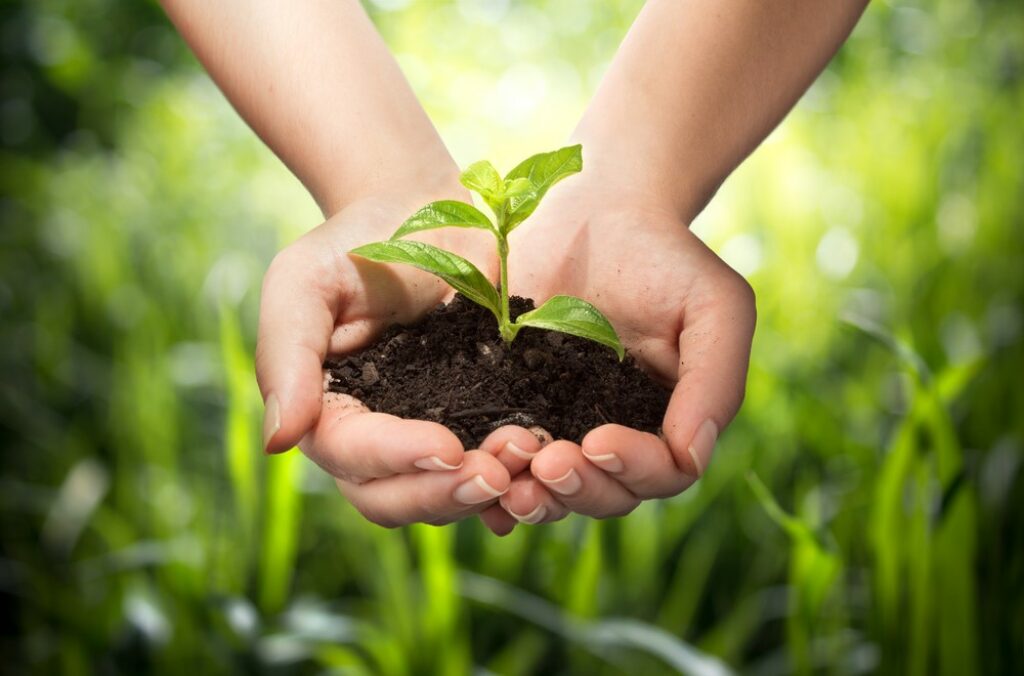
Organic Gardening
Organic gardening is a method of growing plants without the use of synthetic fertilizers, pesticides, or genetically modified organisms (GMOs). Instead, it relies on natural processes to maintain soil fertility and manage pests.
Related Topics (Sponsored Ads):
This approach aims to work in harmony with nature, fostering a healthy and sustainable ecosystem in the garden. Organic gardening encompasses a range of techniques such as composting, crop rotation, and companion planting to encourage biodiversity and minimize environmental impact.

Advantages
The practice of organic gardening offers numerous benefits, especially being a healthier choice for consumers. It promotes environmental conservation by reducing the use of harmful chemicals and preserving the natural balance of the ecosystem. By avoiding synthetic pesticides and fertilizers, organic gardening helps protect water sources and minimizes soil and air pollution. Additionally, organic produce is known for its superior taste and nutritional value. Studies have shown that organic fruits and vegetables contain higher levels of antioxidants and essential nutrients. Furthermore, organic gardening encourages biodiversity, providing a habitat for beneficial insects, birds, and other wildlife, leading to a more resilient and balanced ecosystem.
Disadvantages
One of the main disadvantages is the potential for lower yields compared to conventional farming methods. Organic growers may face greater losses due to pest damage and disease outbreaks, as they rely on natural pest control methods and disease-resistant plant varieties. Moreover, organic gardening requires more labor and time investment, as it often involves manual weed control and the preparation of organic fertilizers and soil amendments. Additionally, organic products may come at a higher price point in the market due to the increased production costs associated with organic practices.
Another challenge in organic gardening is the need for proactive pest and disease management. Without the use of synthetic pesticides, organic gardeners must rely on alternative methods such as beneficial insects, natural predators, and physical barriers to control pests and diseases. This requires vigilance and regular monitoring of the garden to identify and address potential issues before they escalate.
Suitability of Organic Gardening
Organic gardening is well-suited for a wide range of environments and garden sizes. It is particularly beneficial for home gardeners who prioritize sustainability, health, and environmental consciousness. Urban dwellers can also practice organic gardening on a smaller scale, utilizing containers, raised beds, or vertical gardening techniques. Community gardens and school gardens can also adopt organic practices to educate and engage people in sustainable agriculture. Furthermore, organic gardening is suitable for commercial growers who wish to cater to the increasing demand for organic produce and align with environmentally friendly farming practices.
Basic Supplies Needed
To successfully practice organic gardening, several basic supplies are essential. Organic gardeners rely on natural inputs to nurture their plants and soil. Compost, often referred to as “black gold,” is a fundamental component of organic gardening. It enriches the soil with essential nutrients, improves soil structure, and enhances moisture retention. Composting also helps reduce organic waste, promoting sustainability in the garden and beyond.
In addition to compost, organic fertilizers play a crucial role in providing essential nutrients to plants. Natural fertilizers such as bone meal, blood meal, and fish emulsion are commonly used in organic gardening to support plant growth and development without relying on synthetic chemicals. These organic fertilizers contribute to the overall health of the soil and promote a balanced nutrient supply for plants, fostering strong and resilient growth.
Natural pest control methods are another essential supply for organic gardening. Instead of relying on synthetic pesticides, organic gardeners utilize natural alternatives such as neem oil, diatomaceous earth, and companion planting to manage pests and protect their plants. These methods help maintain a healthy balance in the garden ecosystem, allowing beneficial insects to thrive while minimizing damage from harmful pests.
Furthermore, organic seeds and seedlings from reputable suppliers ensure that the garden starts with healthy, non-GMO plants. Selecting organic, non-GMO seeds and seedlings is essential to maintaining the integrity of organic gardening practices and supporting biodiversity in the garden. By choosing organic seeds, gardeners contribute to the preservation of heirloom varieties and promote the cultivation of plants adapted to local growing conditions.
Lastly, essential gardening tools such as hand trowels, pruners, and watering cans are necessary for maintaining the garden without relying on fossil fuel-powered machinery. These basic tools enable organic gardeners to tend to their plants, manage soil, and address garden maintenance tasks in an environmentally conscious manner.
Best Practices for Organic Gardening
In organic gardening, soil health is paramount. Building and maintaining fertile soil through composting, cover cropping, and mulching is key to supporting plant growth and resilience. Compost, often described as “gardener’s gold,” enriches the soil with essential nutrients and beneficial microorganisms, promoting healthy plant development and overall ecosystem balance. Additionally, cover cropping with legumes and other nitrogen-fixing plants can help improve soil structure, suppress weeds, and prevent erosion, contributing to the long-term sustainability of the garden.
Regular observation and monitoring of the garden are essential in organic gardening. This includes pest and disease scouting, enabling early intervention and prevention of problems from escalating. By staying attentive to the garden’s dynamics and addressing issues proactively, organic gardeners can maintain a healthy and thriving growing environment while minimizing the need for intervention with synthetic chemicals.
Crop rotation is another essential practice in organic gardening. By alternating plant families in designated garden areas each growing season, organic gardeners can prevent soil depletion, reduce pest and disease buildup, and promote balanced nutrient utilization. Crop rotation also supports biodiversity in the garden, creating a dynamic and resilient growing environment.
Companion planting, the strategic placement of compatible plants, is a well-established practice in organic gardening. By pairing plants with complementary characteristics, organic gardeners can deter pests, attract beneficial insects, and enhance pollination, leading to healthier and more productive garden ecosystems.
Furthermore, organic gardeners prioritize water conservation by utilizing techniques such as drip irrigation, rainwater harvesting, and mulching to reduce water usage and promote efficient plant hydration.




